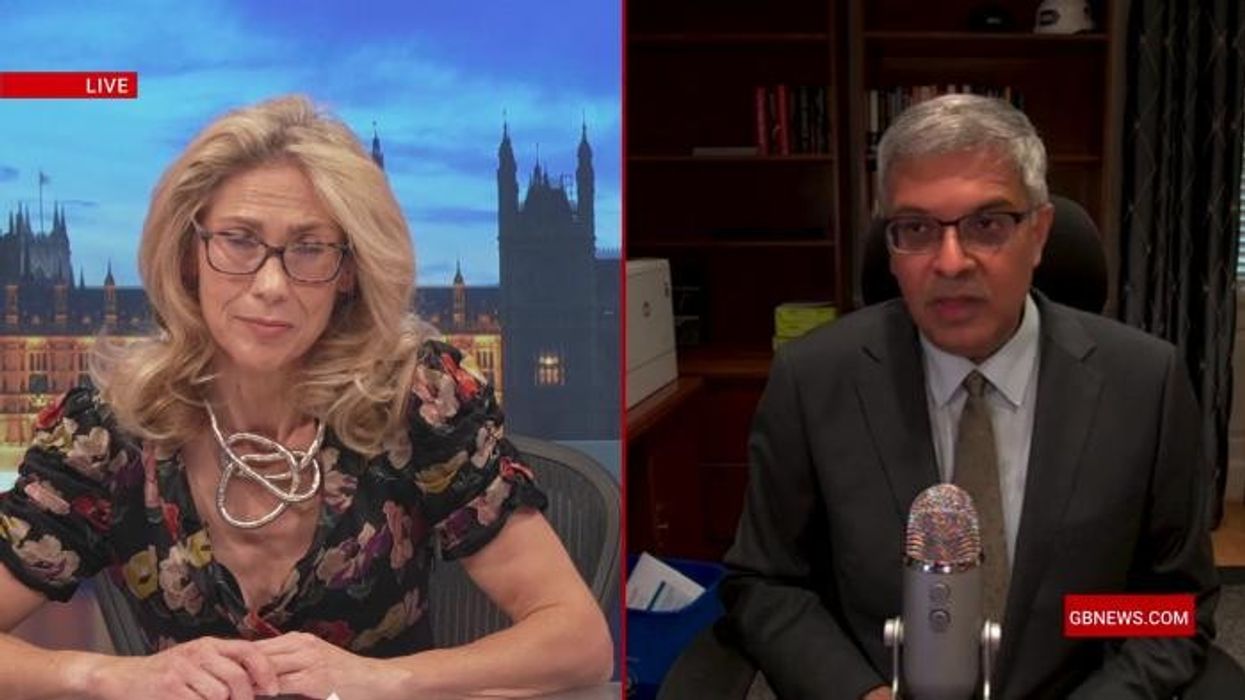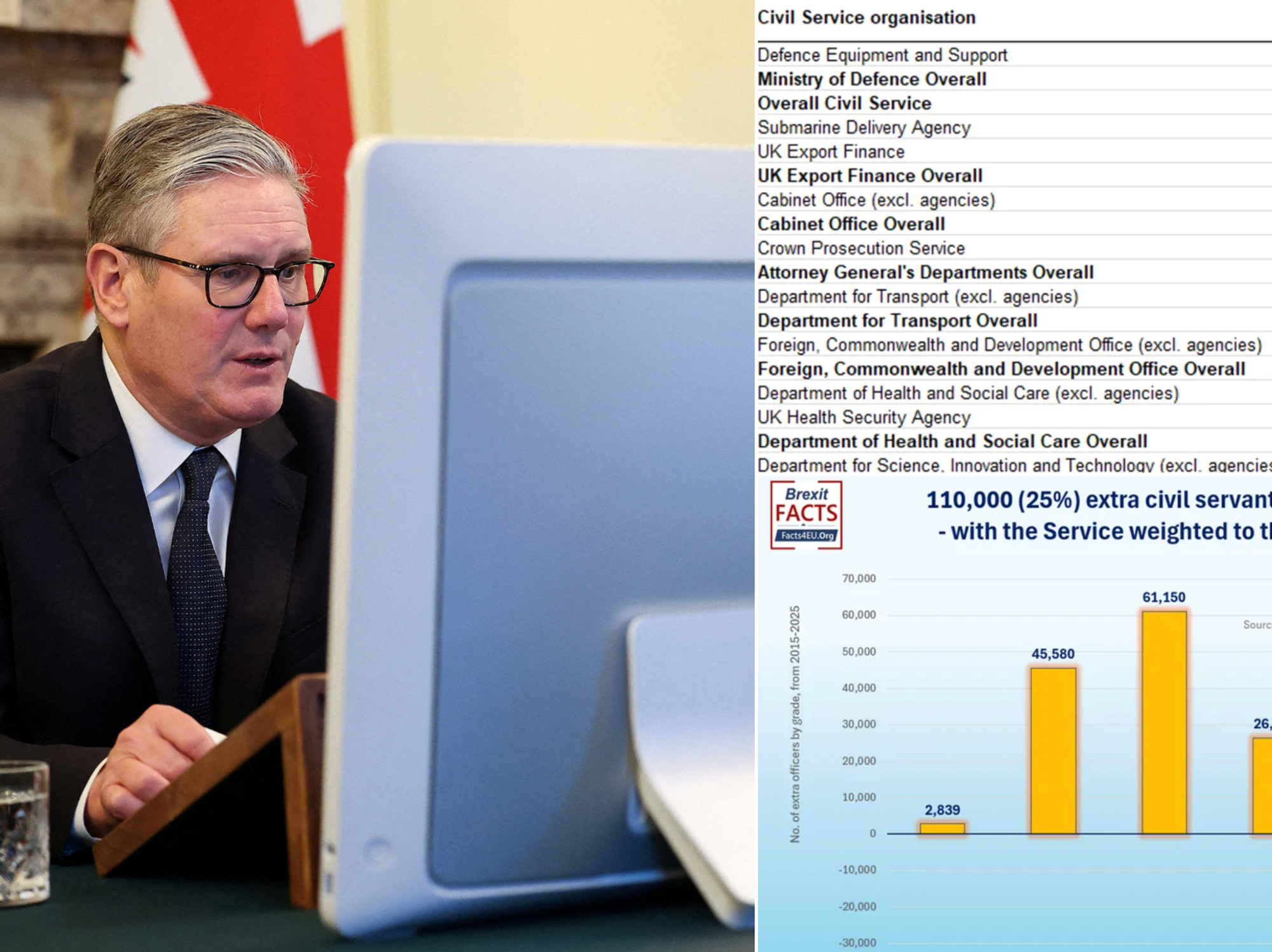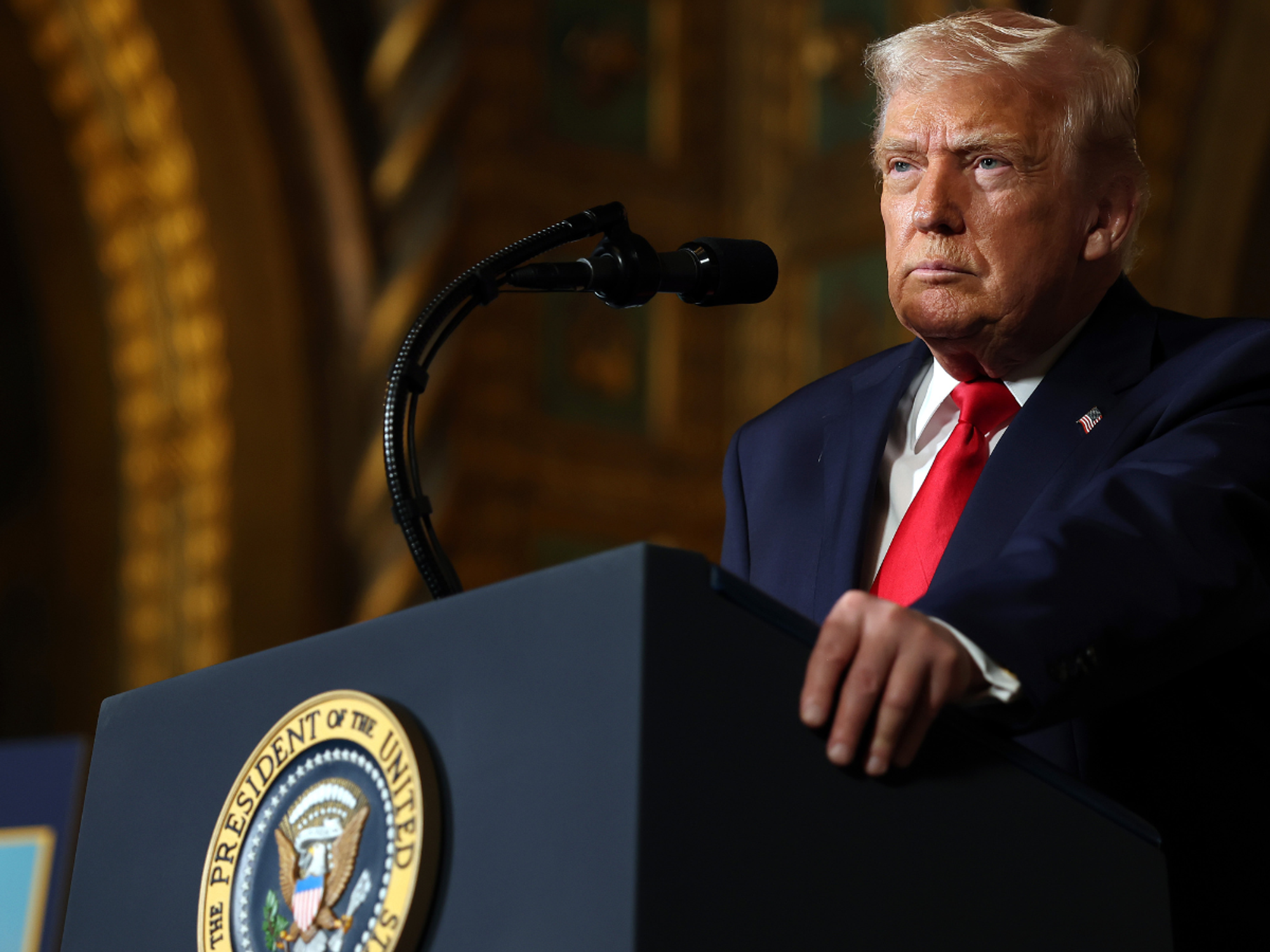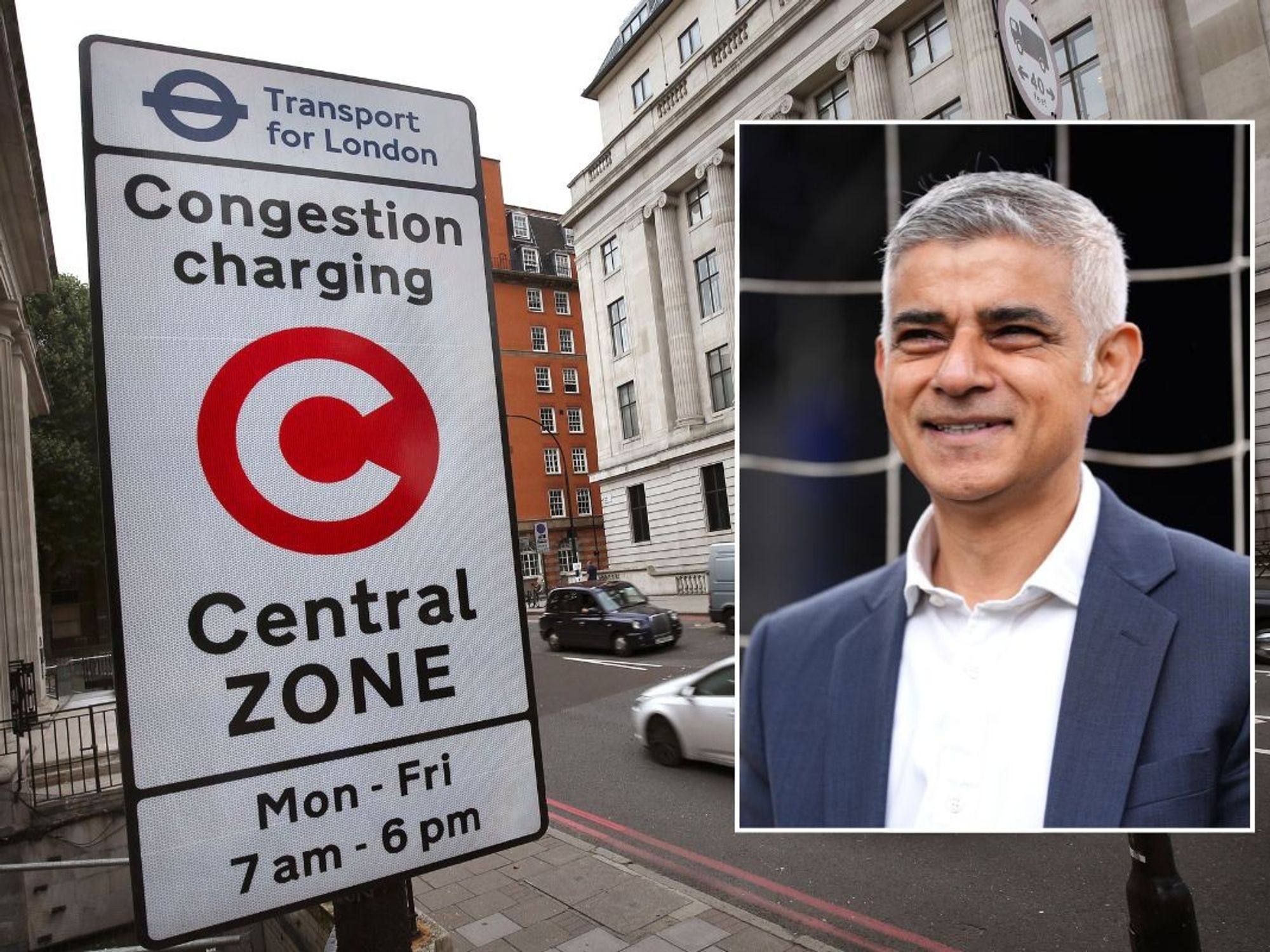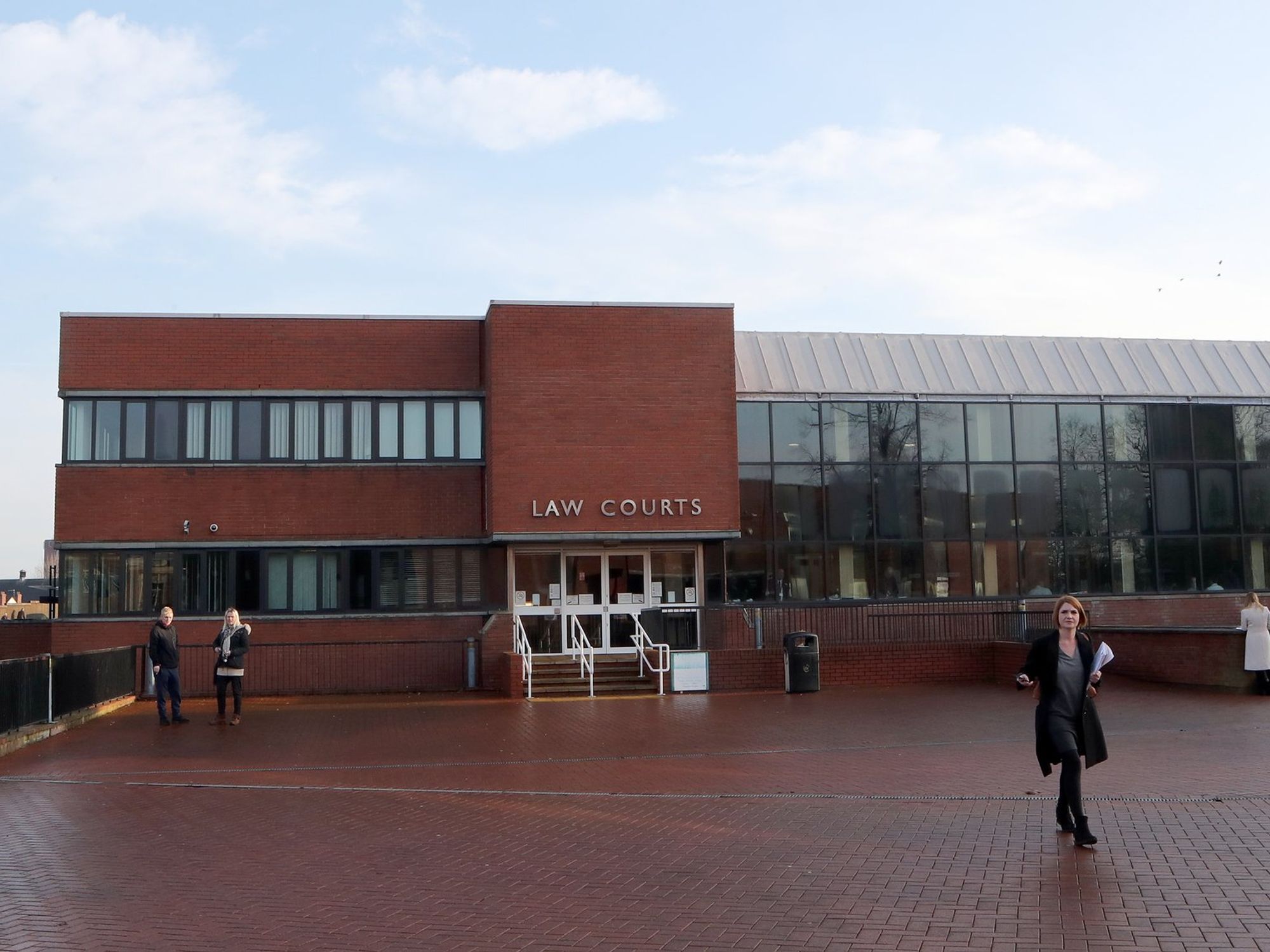Boss of America’s top medical research body told to beef up security after Charlie Kirk assassination
Prof Bhattacharya drew a direct line to his own experience during the Covid years to the assassination of Charlie Kirk
Don't Miss
Most Read
Trending on GB News
The head of America’s top medical research body has revealed he has been told to beef up his security in the wake of the assassination of conservative activist Charlie Kirk - but insists he will not back down from public life.
Professor Jay Bhattacharya, director of the US National Institutes of Health (NIH), said: “There are people telling me that… they want me to have a little more security than I’m used to having. I’d love to be able to ride the metro freely and openly, but everyone’s telling me I shouldn’t be doing that. Which makes me very sad.”
The killing of 31-year-old Mr Kirk, gunned down while addressing students in Utah, has shocked America.
For Prof Bhattacharya, who had recently appeared on Mr Kirk’s show, the tragedy is painfully personal.
“I actually got to know Charlie. I was on his show just a little while before he died," he told GB News.
"I have a great admiration for him. He had a young family and he was obviously very brave. He clearly had a joy in and a desire to talk to young people and reason with them. I mean, as a professor, I share that mission. The fact that he was essentially assassinated in a college campus setting hit home really hard to me.”
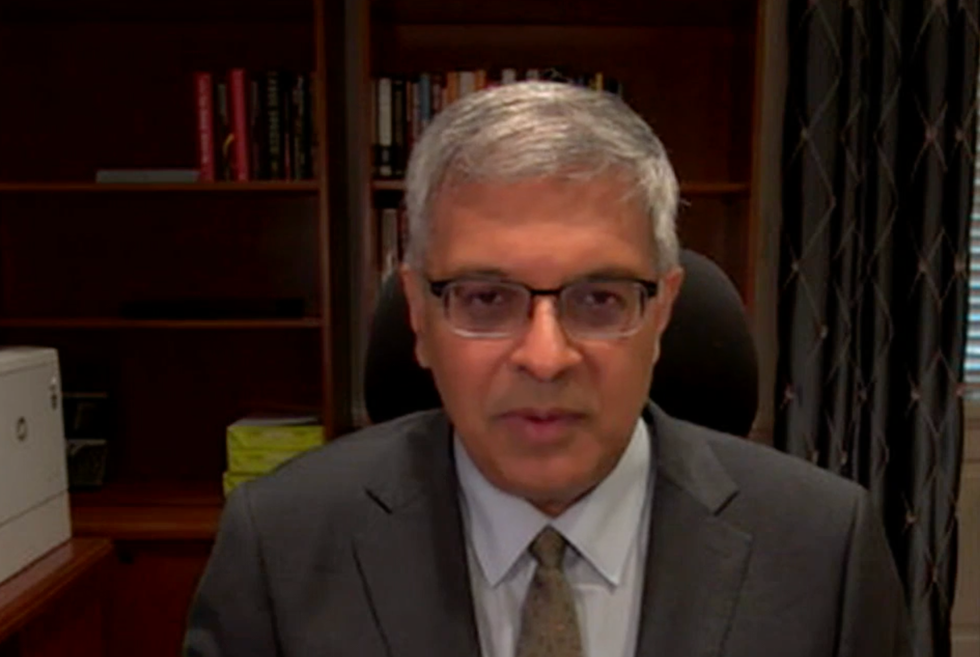
Professor Jay Bhattacharya, director of the US National Institutes of Health, revealed he has been told to beef up his security
|GB NEWS
Prof Bhattacharya drew a direct line to his own experience during the Covid years, when he was hounded for questioning lockdowns and mandates.
He said: “At one point during the pandemic I was actually afraid to walk around Stanford campus. There were posters everywhere, essentially threatening. I felt they were death threats against me as a result of my advocacy during the pandemic.
“It was very, very stressful. I got death threats constantly for several years. I got a tremendous pressure from my university to be silent. I was blacklisted by Twitter.
"My own government undertook activities to make sure that my point of view did not get out… It was heartbreaking. And sometimes it was just scary.”
The Stanford professor turned NIH chief said both he and Kirk shared a belief in open debate rather than intimidation.
“We need a society where we can talk to each other. Even if we disagree, we can reason together. That’s what Charlie’s life was about. It was about reasoning with people. He was a man of faith, which I also identify with.
"If anyone who talked to Charlie Kirk for five minutes would realise what a good human being he was. Even if you disagreed with him… he cared about people, he cared about his family, he cared about doing good.
“I actually had a conversation with him where I think I changed his mind about science funding. I mean, a geeky topic, right? But he was open to discussion. That’s what we need more of.”
Prof Bhattacharya said the culture of fear and division that took root during the pandemic is fuelling wider social unrest:
“During the pandemic the ideology of lockdown was that we should treat our fellow neighbour as a biohazard… as toxic, as poisonous.
"The more we connect with people, the more we interact with people that are different than us, the more society heals.
"That’s how science works - often in contentious ways, but we resolve fights by doing experiments, not by silencing each other.”
Despite the threats, he vowed not to retreat. “I have to keep doing my job. I’m not here to protect myself. I’m here to accomplish the mission of the NIH, which is to advance people’s health. That’s my purpose… and I’m going to keep doing that.”
Prof Bhattacharya, appointed to the NIH post by Donald Trump, said the former president himself faced extraordinary risks.
“Why would he want this job where he was almost assassinated in order to get it? There’s no reason for him to do this, except that he sees the problems we have in the United States. Our children are sicker than they have ever been.
"The prospect is our kids living shorter lives than my generation - which is just not acceptable. And for him, it’s not acceptable either.”
He said Charlie Kirk’s killing is a warning - but it will not silence him.
He said: “I want everybody to live healthy, happy, long lives. To the extent that research can make that happen, that’s my job. I’m going to keep doing that.”
More From GB News


